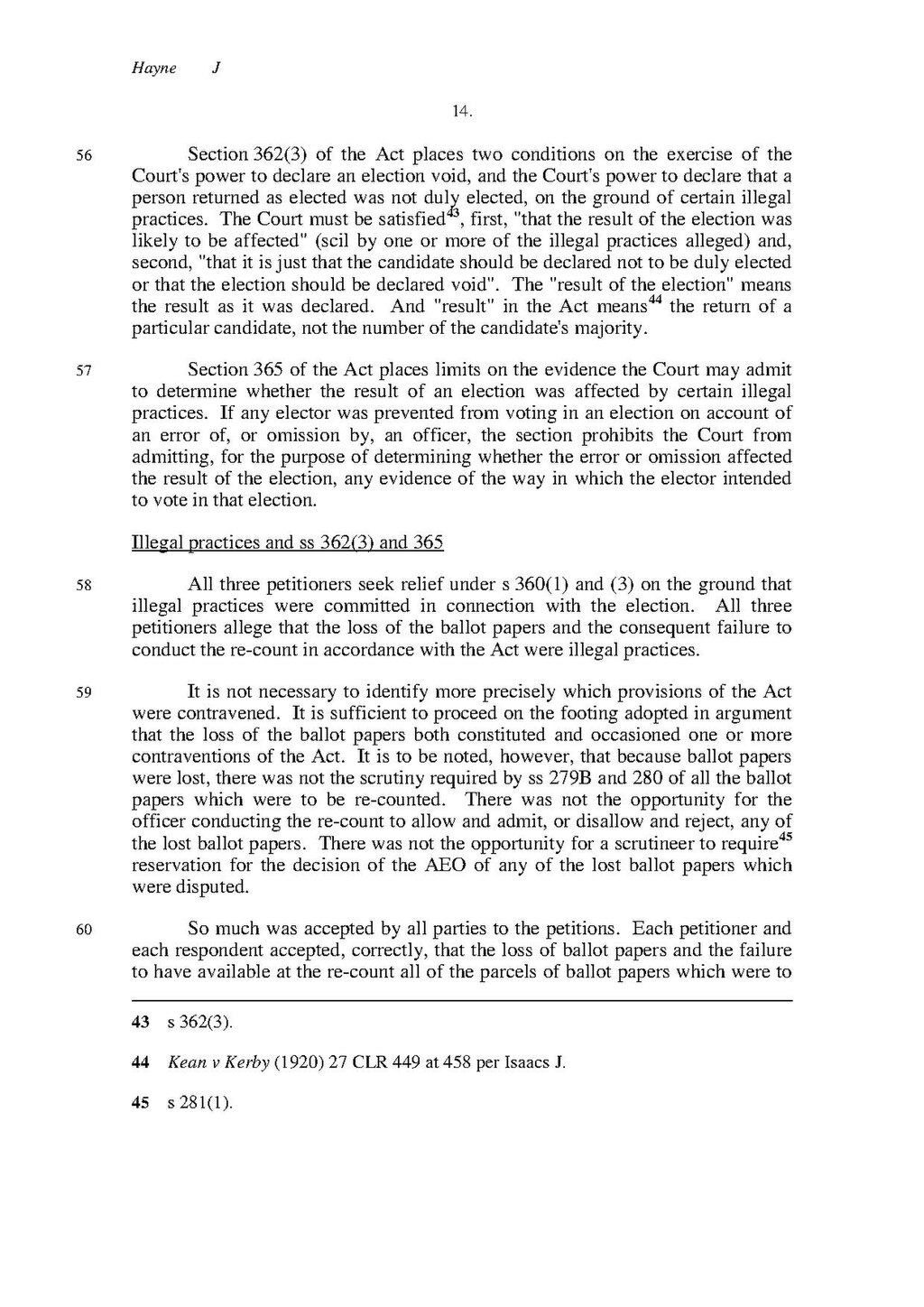Hayne J
14.
Section 362(3) of the Act places two conditions on the exercise of the Court's power to declare an election void, and the Court's power to declare that a person returned as elected was not duly elected, on the ground of certain illegal practices. The Court must be satisfied[1], first, "that the result of the election was likely to be affected" (scil by one or more of the illegal practices alleged) and, second, "that it is just that the candidate should be declared not to be duly elected or that the election should be declared void". The "result of the election" means the result as it was declared. And "result" in the Act means[2] the return of a particular candidate, not the number of the candidate's majority.
Section 365 of the Act places limits on the evidence the Court may admit to determine whether the result of an election was affected by certain illegal practices. If any elector was prevented from voting in an election on account of an error of, or omission by, an officer, the section prohibits the Court from admitting, for the purpose of determining whether the error or omission affected the result of the election, any evidence of the way in which the elector intended to vote in that election.
Illegal practices and ss 362(3) and 365
All three petitioners seek relief under s 360(1) and (3) on the ground that illegal practices were committed in connection with the election. All three petitioners allege that the loss of the ballot papers and the consequent failure to conduct the re-count in accordance with the Act were illegal practices.
It is not necessary to identify more precisely which provisions of the Act were contravened. It is sufficient to proceed on the footing adopted in argument that the loss of the ballot papers both constituted and occasioned one or more contraventions of the Act. It is to be noted, however, that because ballot papers were lost, there was not the scrutiny required by ss 279B and 280 of all the ballot papers which were to be re-counted. There was not the opportunity for the officer conducting the re-count to allow and admit, or disallow and reject, any of the lost ballot papers. There was not the opportunity for a scrutineer to require[3] reservation for the decision of the AEO of any of the lost ballot papers which were disputed.
So much was accepted by all parties to the petitions. Each petitioner and each respondent accepted, correctly, that the loss of ballot papers and the failure to have available at the re-count all of the parcels of ballot papers which were to
